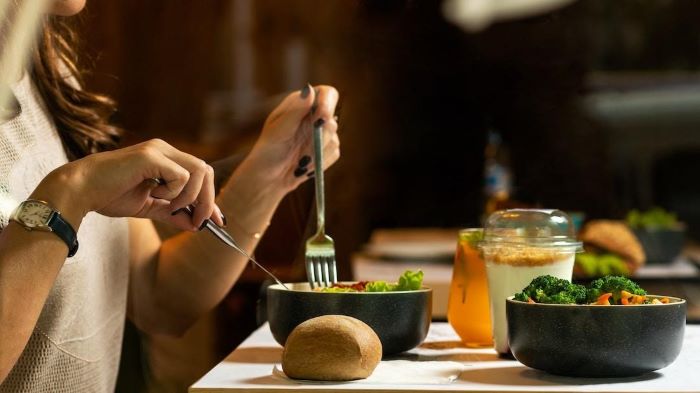Considering the beauty standards throughout history, body image and the pursuit of the “ideal” body have always been prominent. However, in recent times, it appears to have become an unrelenting issue due to its ubiquitous presence in media and society. This omnipresent need for perfection not only affects self-esteem and mental health but can potentially lead to severe eating disorders. In this article, we explore the intricate ties between disordered eating and body image, shedding light on this complex and often misunderstood relationship.
The Relationship Between Body Image and Self-Esteem
Perceptions about body image, while often heavily influenced by societal beauty standards, primarily stem from an individual’s internal perception of their physical self. This body image is closely tied to their self-esteem and consequently affects their attitudes toward food and eating. A skewed body image often leads to a negative self-view, further propelling individuals into a downward spiral of unhealthy eating habits and eventually, eating disorders.
From a psychological perspective, body image is not just a one-dimensional construct. It encompasses various facets-multidimensional factors comprising perceptual, cognitive, affective, and behavioral components. What we perceive when we look in the mirror, our thoughts and feelings about our body, and even the way we behave due to our perceptions all play instrumental roles in sculpting our body image. Low self-esteem is often a consequence of a negative body image.
When individuals believe that they cannot meet societal beauty ideals, it incurs a negative judgment of worth, feeling inadequate, inferior, or unattractive. It’s during these times when individuals, particularly the youth, may express, “I need someone to talk to,” signaling their struggles with body image and self-esteem.
How Body Image Contributes to Food Disorders

Many individuals with disordered eating habits have distorted body image perceptions, often seeing themselves as overweight or undesirable, even when they are underweight or objectively physically fit. This distorted perception leads to a constant pursuit of an unattainable and unrealistic body ideal, triggering severe anxiety and self-disgust. The pressure to conform to society’s narrow beauty standards exacerbates these feelings, driving individuals to engage in extreme dieting, excessive exercise, or purging behaviors to achieve their desired body shape.
Furthermore, societal factors such as media, advertising, and social media platforms heavily contribute to the negative body image experienced by individuals with body disorders. The constant exposure to images of thin, airbrushed models and the glorification of certain body types as the epitome of beauty reinforces the belief that one’s worth is solely defined by their physical appearance. This unattainable standard perpetuates feelings of inadequacy and fuels the desire to alter one’s body through disordered eating patterns.
It is essential to recognize that these disorders are multifaceted and arise from a combination of genetic, environmental, and psychological factors. However, the impact of negative body image cannot be underestimated. Addressing body image concerns and promoting healthy body acceptance is fundamental in the prevention and treatment of these disorders. By promoting a culture that celebrates diversity and embraces different body shapes and sizes, we can help individuals develop a positive body image, reducing the risk of developing or exacerbating these disorders.
Understanding the Impact of Diet Culture on Body Image

Diet culture, deeply ingrained in society, promotes the idea that achieving a particular body shape or size is the ultimate measure of success and self-worth. This constant pressure can lead to harmful behaviors and a negative body image. When you are bombarded with messages about achieving an “ideal” body, it is difficult not to internalize these standards. You may find yourself increasingly preoccupied with your appearance, constantly evaluating and criticizing your body. This negative self-talk perpetuated by diet culture can be detrimental to your mental health and overall well-being.
Diet culture not only affects how you perceive yourself but also influences your relationship with food. You may find yourself constantly dieting, adhering to strict rules and restrictions in pursuit of the “perfect” body. This chronic dieting can lead to disordered eating patterns, unhealthy relationships with food, and an endless cycle of weight loss and regain. Moreover, diet culture often overlooks the importance of individuality and diversity. It perpetuates the idea that there is a one-size-fits-all approach to health and beauty. However, everyone has unique genetic make-ups, body composition, and individual needs.
In constantly comparing yourself to others or striving for an unrealistic ideal, you may be disregarding your body’s needs and sabotaging your self-esteem. It is vital to challenge the norms perpetuated by diet culture and embrace a more inclusive and compassionate approach to body image. Instead of focusing on achieving a specific size or shape, shift your focus towards cultivating a healthy relationship with food and your body.
Celebrate and appreciate the diverse range of body types, knowing that health comes in various forms. Remember, as an individual, you have the power to reclaim your body image and define your own worth. Surround yourself with positive influences, reject societal expectations, and prioritize your mental and physical well-being above all else. You can find an online community to develop a new perspective with the help of platforms like Supportiv. By understanding the impact of diet culture and actively challenging its influence, you can foster a more positive and accepting relationship with yourself and your body.
Establishing a Healthy Relationship With Food
If you’re looking to establish a healthy relationship with food, you’ve come to the right place. Building a healthy relationship with food is crucial for overall well-being and can have a positive impact on your physical and mental health. A vital aspect of establishing a healthy relationship with food is to debunk food myths and avoid labeling foods as “good” or “bad.” Allowing yourself to enjoy a wide variety of foods without guilt or restriction is essential. Instead of focusing on what you can’t have, concentrate on incorporating more nutrient-dense foods into your diet. This approach will help you make healthier choices naturally, rather than feeling deprived or overwhelmed by rigid rules.
Additionally, practicing gratitude for the food on your plate can help foster a positive mindset and appreciation for nourishing your body. Remember, establishing a healthy relationship with food is not about perfection or restrictive eating habits. It’s about focusing on nourishing your body, listening to its needs, and finding joy in the process. By adopting intuitive eating, debunking food myths, and practicing mindful eating, you can set yourself on a path toward a healthier relationship with food and ultimately enhance your overall well-being.
Learning to Love Your Body at Every Stage

Learning to love your body at every stage is a journey that many people embark upon at some point in their lives. It can be all too easy to fall into the trap of comparing yourself to others or feeling pressured to conform to societal beauty standards. However, it is essential to recognize that everyone’s body is unique and deserves to be celebrated. One key aspect of learning to love your body is embracing its changes over time. Our bodies go through various stages throughout life, from childhood to adolescence, adulthood, and beyond.
Each stage brings its own set of challenges and changes, whether it’s puberty, pregnancy, aging, or illness. Rather than viewing these changes as flaws, it is crucial to shift our mindset and see them as a testament to the incredible capabilities of our bodies. Learning to appreciate the strength and resilience that our bodies possess can foster a sense of gratitude and love for ourselves.
Another important aspect of body acceptance is shifting the focus from appearance to overall health and well-being. Our bodies are more than just their outward appearance. They have the ability to heal, move, and experience pleasure. By prioritizing self-care practices and making choices that nourish our bodies, such as eating well, exercising regularly, and getting enough rest, we can cultivate a positive relationship with our bodies. It is essential to remember that health looks different for everyone, and it’s not about achieving a specific size or shape.
Altogether, the relationship between body image, self-esteem, and eating disorders is intricate and individualistic. With a nuanced approach to addressing each aspect, there’s the potential to improve self-perception and nurture healthier eating habits. It is vital to recognize this intertwined complex and encourage wide-ranging solutions that inspire acceptance and empathy towards individual body images.


